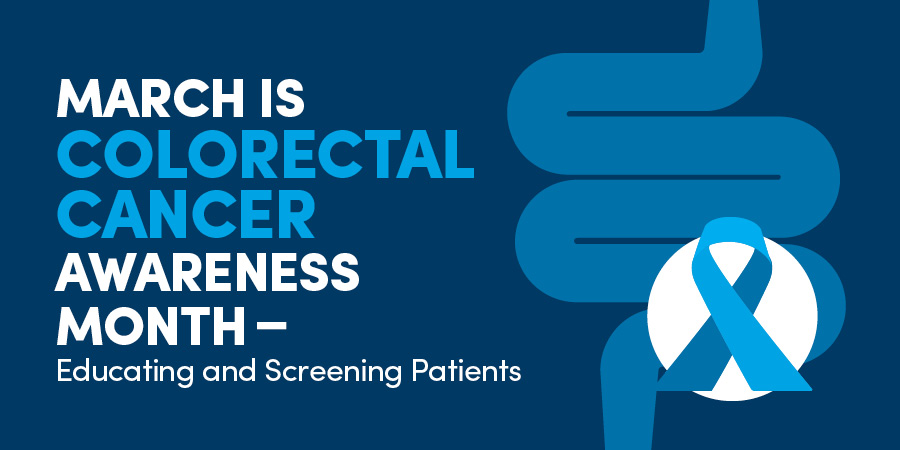

Colorectal cancer is the most common cancer diagnosed in both men and women in the United States, according to the Centers for Disease Control and Prevention (CDC) . The American Cancer Society
. The American Cancer Society estimates that more than 53,000 Americans will die from colorectal cancer in 2024.
estimates that more than 53,000 Americans will die from colorectal cancer in 2024.
Educating patients about the importance of screening for colorectal cancer saves lives. Highmark has educational resources available — that practices can order at no cost — to inform patients about the role screening plays in preventing and detecting colorectal cancer in its earliest stages.
The U.S. Preventive Services Task Force (USPSTF) recommends all adults be screened for colorectal cancer starting at age 45. Previously, it was age 50, but the USPSTF lowered the recommended age in 2022.
Individuals at an elevated risk — whether due to lifestyle factors and/or family history — may need earlier or more frequent screening.
Highmark Preventive Health Guidelines include colorectal cancer screenings for eligible members. Please note that most, although not all, of our employer groups follow the Highmark Preventive Schedule. Therefore, not all Highmark members may have coverage for services on the preventive schedule.
include colorectal cancer screenings for eligible members. Please note that most, although not all, of our employer groups follow the Highmark Preventive Schedule. Therefore, not all Highmark members may have coverage for services on the preventive schedule.
The U.S. Multi-Society Task Force has classified the various colorectal cancer screening modalities based on performance and effectiveness. Colonoscopy and annual fecal immunochemical test (FIT) are both classified as a tier-1 screening recommendations.
has classified the various colorectal cancer screening modalities based on performance and effectiveness. Colonoscopy and annual fecal immunochemical test (FIT) are both classified as a tier-1 screening recommendations.
Healthcare Effectiveness Data and Information Set (HEDIS®) measures the level of patient care provided by health care organizations and practitioners.
To meet the HEDIS measure for Colorectal Cancer Screening, the following screening tests will help close gaps in patient care:
Documentation must include a note indicating the date the colorectal cancer screening was performed. At a minimum, the YEAR must be specified.
It is not required to include a result if the screening date is clearly shown in the medical or surgical history. If the date is not clear, the result or finding must be included in the documentation to ensure the test was performed and not merely ordered.
The following required exclusions can be submitted on the claim to remove the member from the measure:
Tip: A patient’s refusal is NOT considered an exclusion.
On the Provider Resource Center (PRC), practitioners can download the following free educational resources to share with patients and staff:

 (Spanish version available)
(Spanish version available)
 (Spanish version available)
(Spanish version available)To order copies for your practice, go to the PRC > EDUCATION/MANUALS > Inventory Request Form > Select Printable Item. Click the down arrow and then select the items you wish to order. Complete the form and click the ADD TO ORDER button.
Highmark does not recommend particular treatments or health care services. This information is not intended to be a substitute for professional medical advice, diagnosis, or treatment. You should determine the appropriate treatment and follow-up with your patient. Coverage of services is subject to the terms of each member’s benefit plan. Additionally, state laws and regulations governing health insurance, health plans and coverage may apply and will vary from state to state.